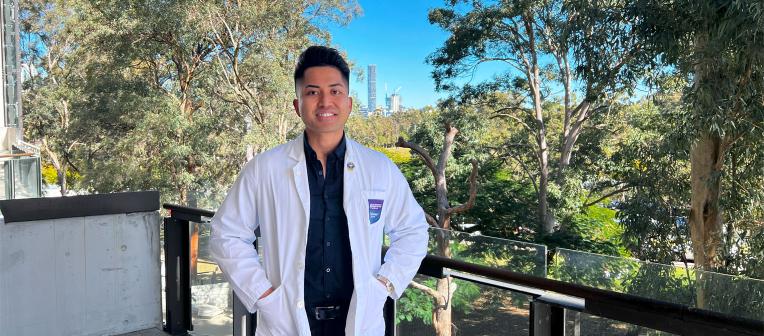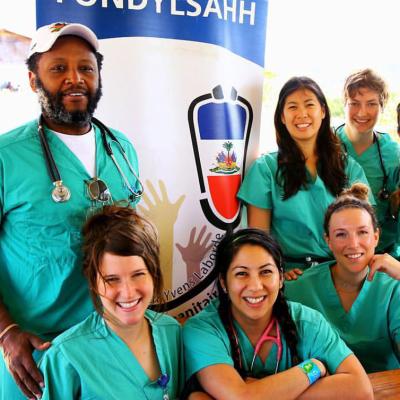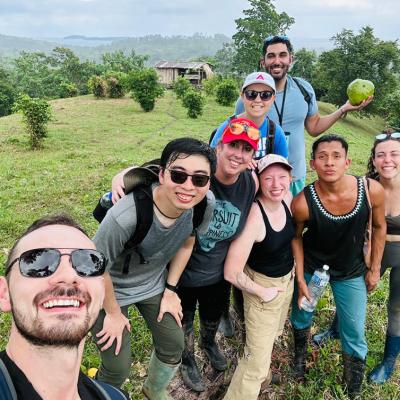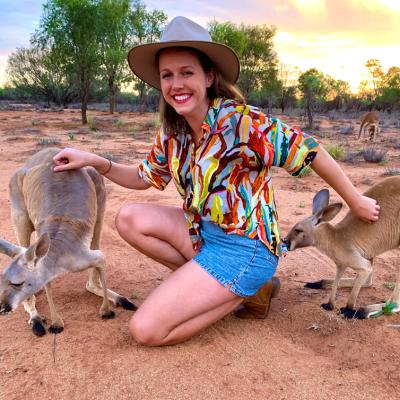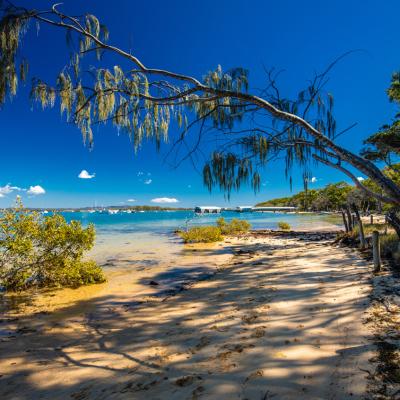Brian Gutierrez, originally from National City, California, embarked on his medical journey with The University of Queensland-Ochsner Clinical School (UQ-Ochsner), inspired by mentors and a strong connection to the program's unique opportunities. A graduate of the University of California, San Diego, where he earned both his bachelor's and master's degrees, Brian was drawn to the UQ-Ochsner MD program for its dual-country experience and the chance to explore healthcare systems in both the United States and Australia.
Brian said traveling from the US to Australia, practicing and seeing what medicine's like in New Orleans, Louisiana, and Brisbane, Queensland, has been a highlight.
“This aspect of my education has allowed me to immerse myself not just in diverse medical environments but also in the cultural and natural beauty of different continents,” Brian said.
“From exploring the vibrant landscapes of Australia to understanding the nuances of healthcare delivery across borders, my journey has been richly rewarding.”
During his return rotation at the Princess Alexandra Hospital, something that all fourth-year UQ-Ochsner medical students must undertake, Brian dived into emergency medicine and orthopedic surgery. He gained hands-on experience in high-acuity environments, assisting in both emergency care and orthopedic procedures.
Reflecting on his day-to-day routine, Brian described a balance between rigorous clinical duties and personal well-being, often starting his mornings with a workout to maintain his physical and mental health.
"Between rotations I’m still learning and studying at the same time so I'm able to master my craft as a level four medical student, preparing myself for residency.”
Beyond rotations, Brian made the most of his time back in Australia, catching up with friends and traveling. From scuba diving around shipwrecks in Moreton Bay to connecting with family and professional contacts in the Philippines, Brian seized every opportunity to broaden his horizons.
His journey was not only about medical training but also about embracing the fullness of life, balancing his passion for medicine with spirituality, travel, and personal joy.
"My experience in the Australian healthcare system has been eye-opening, providing me with a firsthand look at a universal healthcare model vastly different from that of the US.
“The strengths of the system, such as free access to healthcare for all, which allows patients from various backgrounds to receive the medical attention they need.
“However, I also observed some of the system's challenges, including the strain on resources and the backlog of patients seeking care,” he said. "I can see the health disparities and inequities, and it's interesting to see how the system manages the influx of patients," Brian said.
He was particularly impressed by the comprehensive training Australian healthcare providers receive, with an emphasis on general practice before specialization, which contrasts with the more direct path to specialization in the US.
His involvement with specialized services like the Royal Flying Doctor Service and Life Flight teams further underscored the unique aspects of Australian healthcare, highlighting the innovative ways the system extends care to remote and underserved populations.
As Brian prepares to apply for residency in physical medicine and rehabilitation, he feels well-equipped by his time at UQ-Ochsner.
“The program's integration of diverse clinical experiences has offered me a comprehensive view of patient care across various cultural contexts.”
For incoming UQ-Ochsner students, Brian advises: "Don't be scared. Be in your lane, stay focused on your goals, and remember that you made it into this program for a reason. Enjoy the process and be in the moment."
Brian's story is a testament to the transformative potential of studying medicine in a global context, where learning extends beyond the classroom and into the very fabric of different societies.
His return rotation as part of the UQ-Ochsner MD program is a vivid reminder that medicine is not just about treating patients—it's also about understanding and engaging with the world around us.

